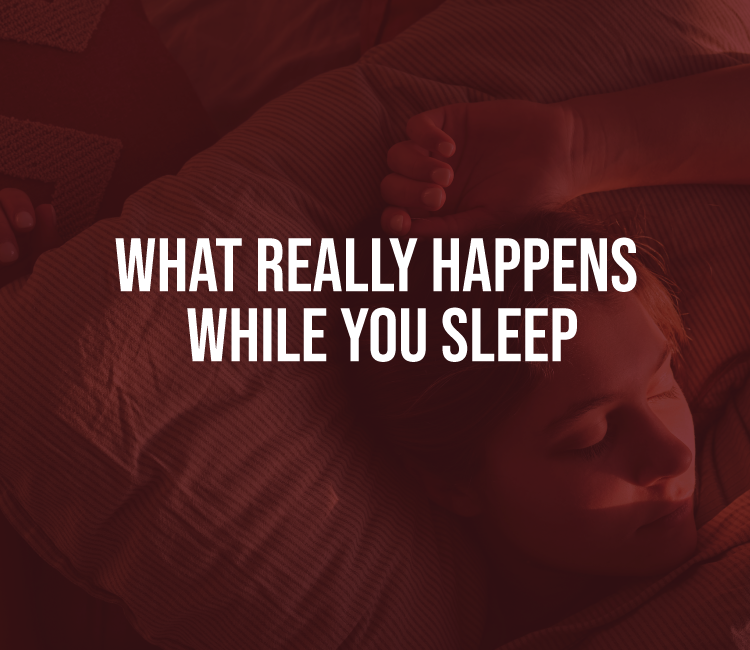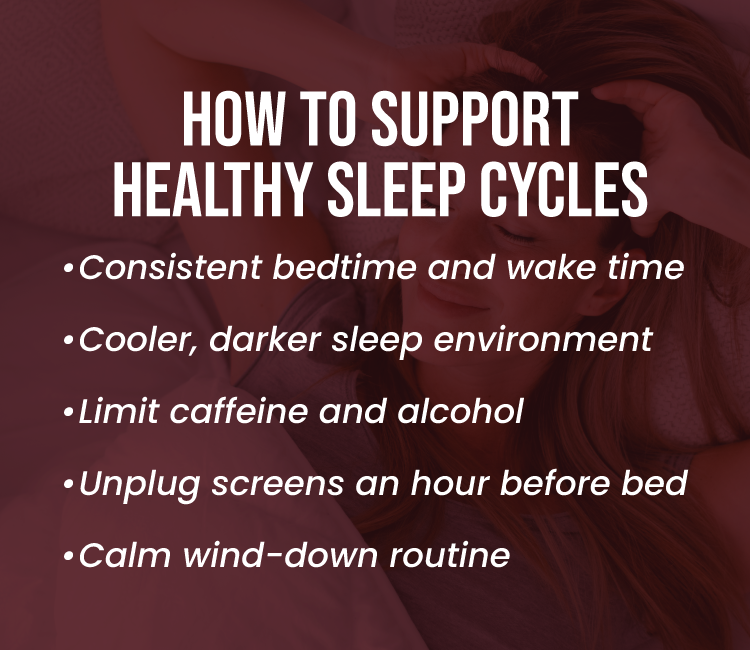Energized Passionfruit - While Supplies Last!

Understanding why every stage of the sleep cycle matters for your health
You spend roughly one-third of your life asleep, yet most people have no idea what's happening during those precious hours of rest. Sleep isn't just "time off" for your body and brain—it's an incredibly active period of restoration, processing, and preparation for the day ahead. Understanding your sleep cycle can help explain why you sometimes wake up feeling like you could conquer the world, while other mornings leave you dragging yourself to the coffee maker.
Every night, your brain orchestrates a carefully choreographed sequence of sleep stages that repeats roughly every 90 to 110 minutes. Most people complete four to six complete cycles per night, with each cycle containing distinct phases that serve unique purposes for your physical and mental health.

This is your transition from wakefulness to sleep, lasting only 5 to 10 minutes in a typical cycle. Your brain waves begin to slow down from their daytime alpha waves to slower theta waves. Your muscles start to relax, your heart rate decreases, and your breathing becomes more regular. You're still easily awakened during this stage—a gentle touch or quiet sound can bring you right back to consciousness.
Think of Stage 1 as your brain's way of testing the waters before diving into deeper sleep. It's during this phase that you might experience those sudden "falling" sensations that jolt you awake, known as hypnic jerks.
Comprising about 45-55% of your total sleep time, Stage 2 is where your body begins to settle in for the night. Your brain waves show distinctive patterns called sleep spindles and K-complexes—brief bursts of electrical activity that help keep you asleep by blocking external stimuli from reaching your consciousness.
Your body temperature drops, your heart rate continues to slow, and your muscles relax further. This stage acts as a gateway to the more restorative phases of sleep that follow.

This is where the magic happens to your body. Deep sleep, also called slow-wave sleep, is characterized by delta brain waves—the slowest and largest brain waves you'll produce. This stage typically accounts for 15 to 20% of your sleep in healthy adults, though it decreases with age.
During deep sleep, your body becomes a restoration powerhouse. Growth hormone floods your system, promoting tissue repair and muscle growth. Your immune system kicks into high gear, producing infection-fighting cells and antibodies. Blood flow increases to your muscles, delivering oxygen and nutrients needed for repair and recovery.
Your brain also uses this time for physical maintenance, clearing out metabolic waste products that accumulate during waking hours, including beta-amyloid plaques associated with Alzheimer's disease. It's like having a night janitor service for your brain.
REM (Rapid Eye Movement) sleep is perhaps the most fascinating stage of all. Named for the characteristic quick eye movements that occur during this phase, REM sleep is when your brain becomes almost as active as when you're awake. Your brain waves closely resemble those of wakefulness, yet your body is essentially paralyzed to prevent you from acting out your dreams.
This stage accounts for about 20-25% of your sleep and is crucial for cognitive function and emotional regulation. During REM sleep, your brain processes the day's experiences, consolidates memories, and integrates new information with existing knowledge. It's like your brain's way of filing important information and discarding what you don't need.
REM sleep also plays a vital role in emotional processing and creativity. Studies show that people who get adequate REM sleep are better at solving complex problems and processing emotional experiences in healthy ways.

These stages don't just happen once per night—they cycle through repeatedly, with some important variations. A full sleep cycle takes about 90 minutes. As the night progresses, the time spent in deep sleep decreases, while REM periods become longer and more frequent. This shifting balance allows your body to focus on physical recovery early in the night and mental and emotional restoration later on.
Understanding the sleep cycle helps explain why poor sleep affects you in specific ways. Here’s what can happen when sleep is fragmented or cut short:
The beauty of understanding your sleep cycle is recognizing that quality matters as much as quantity. Your brain and body need to complete these cycles uninterrupted to function at their best. By respecting the science of sleep, you can wake up feeling sharper, stronger, and more emotionally balanced.


Most people don't need more hours of sleep — they need better sleep. The kind that restores your body, sharpens your mind, and makes the next day feel doable again.
read
Stay present and mentally clear this summer with 3 tips from MAKE Wellness. Support focus, energy, and balance with movement and mindful practices daily.
read.jpg)
Discover the power of timing with MAKE Wellness. Learn strategies to recognize the right moments for growth, opportunities, and personal performance.
read